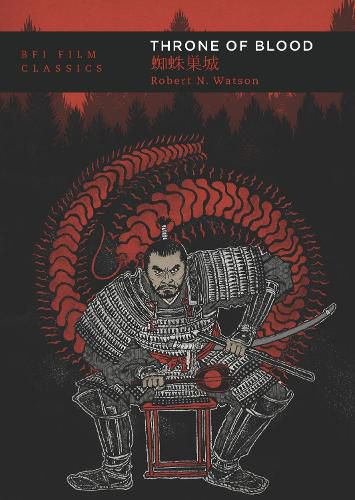Readings Newsletter
Become a Readings Member to make your shopping experience even easier.
Sign in or sign up for free!
You’re not far away from qualifying for FREE standard shipping within Australia
You’ve qualified for FREE standard shipping within Australia
The cart is loading…






Throne of Blood (1957), Akira Kurosawa’s reworking of Macbeth, is widely considered the greatest film adaptation of Shakespeare ever made. In a detailed account of the film, Robert N. Watson explores how Kurosawa draws key philosophical and psychological arguments from Shakespeare, translates them into striking visual metaphors, and inflects them through the history of post-World War II Japan. Watson places particular emphasis on the contexts that underlie the film’s central tension between individual aspiration and the stability of broader social and ecological collectives - and therefore between free will and determinism.
In his foreword to this new edition, Robert Watson considers the central characters’ Washizu and his wife Asaji’s blunder in viewing life as a ruthless competition in which only the most brutal can thrive in the context of an era of neoliberal economics, resurgent ‘strongman’ political leaders, and myopic views of the environmenal crisis, with nothing valued that cannot be monetized.
$9.00 standard shipping within Australia
FREE standard shipping within Australia for orders over $100.00
Express & International shipping calculated at checkout
Throne of Blood (1957), Akira Kurosawa’s reworking of Macbeth, is widely considered the greatest film adaptation of Shakespeare ever made. In a detailed account of the film, Robert N. Watson explores how Kurosawa draws key philosophical and psychological arguments from Shakespeare, translates them into striking visual metaphors, and inflects them through the history of post-World War II Japan. Watson places particular emphasis on the contexts that underlie the film’s central tension between individual aspiration and the stability of broader social and ecological collectives - and therefore between free will and determinism.
In his foreword to this new edition, Robert Watson considers the central characters’ Washizu and his wife Asaji’s blunder in viewing life as a ruthless competition in which only the most brutal can thrive in the context of an era of neoliberal economics, resurgent ‘strongman’ political leaders, and myopic views of the environmenal crisis, with nothing valued that cannot be monetized.